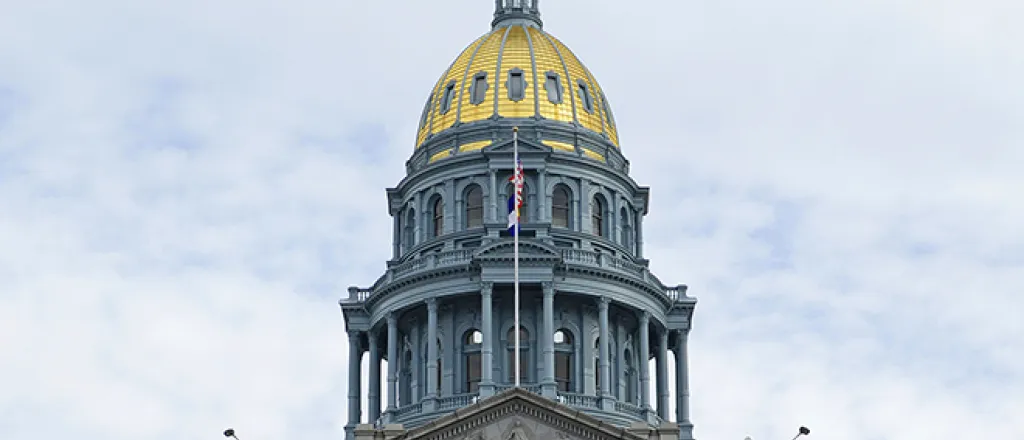
Mark Hillman’s Capitol Review - After Sacrificing for Others, Many Americans Just Want to Work
Other than war, nothing better illustrates the unique responsibility weighing upon our president or governor than does the current health emergency. Senators and representatives can always point fingers at someone else, but the buck stops with the leader of the executive branch in times of crisis.
Rightfully concerned that the Wuhan coronavirus could throw our hospitals into chaos if left to run unchecked through the population, both President Trump and Governor Polis heeded the advice of experts in medicine to try to slow down the virus while increasing the capacity for treating severe cases. Neither has been perfect, but both have shown restraint and empathy.
So far, the general public has largely heeded these precautions to protect those for whom contracting COVID-19 could be a death sentence.
The cost of this government-ordered shutdown of much of our economy is barely beginning to be realized:
- In a month’s time, America lurched from the lowest unemployment rate in 50 years to 22 million people – more than 10% of all working-age Americans – losing their jobs.
- More than 7 million small businesses in the U.S. are at risking of closing permanently if the shutdown persists for even another month. Twice that many could be ruined if forced to remain closed for 3-5 months.
- Nearly 70% of Americans do not have jobs that allow them to work from home. They are the ones who build, repair and deliver goods or provide services used by everyone.
Even if governments ease the current restrictions by May 1, business as usual will not resume for some time. It’s hard to imagine people eager to climb on an airplane with a couple hundred strangers. Restaurants may have to make many tables off-limits to accommodate “social distancing.” People will be cautious about large crowds so conferences, concerts and sporting events will be cancelled or held amid empty seats.
Sure, that’s bad news for large corporations, but it’s also devastating to anyone who makes a living waiting tables, cleaning hotel rooms, sweeping up after sporting events, or servicing airplanes. It’s crushing to bus drivers, clerks and concessionaires.
The response to the Wuhan virus may have saved many lives, but it threatens many others – the forgotten men and women of America whose financial survival is increasingly at risk. Many become more desperate with each passing day. They need their job or their business to provide for the safety, security and wellbeing of their family. Many have invested their sweat and savings in a business that is financed with debts that must be paid.
These are the forgotten men and women of the current era. That’s not to suggest that either President Trump or Governor Polis are purposefully ignoring them. They have been preoccupied with fighting the virus. Now they must take a broader view.
Imagine that your family has only enough savings to pay one more month of expenses. You are willing to work, but businesses that would hire you are closed by government order. Years of toil and savings used to start a business are being demolished by the decisions of government officials who recognize the current health emergency but not the financial catastrophe they are imposing on so many.
While we study projections to thwart COVID-19, we must not ignore the proven link between unemployment and drug overdoses or suicides. These stem from desperation that many government officials and health experts don’t understand because their jobs and finances are secure. Checks from government might make politicians feel better about themselves, but they don’t provide the security that comes from a reliable job.
Lives lost to depression, suicide and drug overdoses are no less tragic than those lost to COVID-19.
Now it’s time to take seriously the lives and security of so many hard-working Americans who have sacrificed their own livelihood to help others and now simply want government to allow them to go back to helping themselves.


















